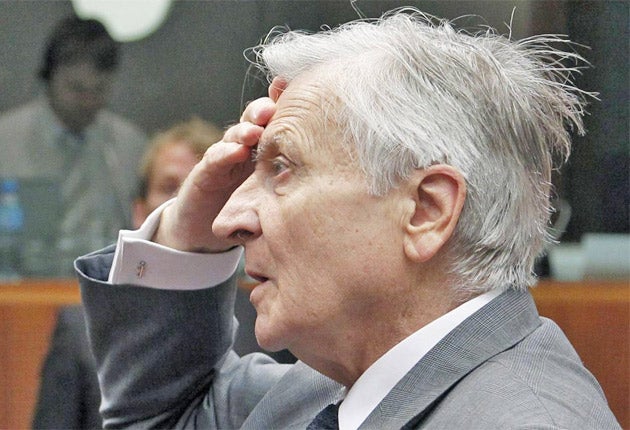Ireland's debt junked as euro crisis spreads

Europe's debt woes escalated yesterday as Ireland's credit rating was cut to junk status, and the crisis threatened to engulf its biggest victim yet in Italy. Moody's Investors Service cut Ireland's ratings by one notch to Ba1 from Baa3 and kept a negative outlook.
Click HERE to view graphic (91k jpg)
It added that there was a danger that the country will need more bailout aid in late 2013 when the current European Union-International Monetary Fund support program ends.
Italy and Spain both insisted last night that their economies, and with them the future of the euro, were secure from the debt crisis that has already floored Greece.
Speculators have stepped up attacks on the two southern European economies – the third and fourth largest in the eurozone. In both countries borrowing costs soared, while stock markets and the euro fell back – despite pledges from finance ministers that Italy and Spain were committed to slashing their debt levels.
The developments came as Greece, which for more than a year has been swamped by a growing sovereign debt crisis, rejected a rescue deal proposed at an emergency EU finance ministers' meeting in Brussels that involved a partial default on repayments. The plan had won support among several countries, as well as from Christine Lagarde, the new IMF chief.
After attending the meeting in Brussels, Italy's Finance Minister Giulio Tremonti told reporters he was "leaving to wrap up the Italian consolidation package", which pledges to cut spending by €47bn (£41.3bn) and wipe out Italy's deficit by 2014, by cutting local government grants, health spending and pensions. At almost 120 per cent to her national income, Italy's debt is second only to Greece relative to the size of her economy. In the UK, debt stands at about 60 per cent of income.
Italian premier Silvio Berlusconi said the country had "to be united and cohesive in the common interest".
The opposition has indicated it will work with the government to pass packages quickly to reassure markets. The German Finance Minister, Wolfgang Schauble, said Italy's austerity package was "ambitious" but he was confident it would be approved. He even sought to divert attention from the larger economies. "We have not spoken much about Italy, because we are convinced that the core of the crisis is Greece," he told reporters.
Spanish Prime Minister José Luis Rodríguez Zapatero stressed the measures his government had taken to reduce debt levels and placate the markets. Spain has slashed public wages, frozen pensions, increased the retirement age and cut state subsidies.
It is aiming to reduce the eurozone's third-largest deficit to 6 per cent of GDP this year from 9.2 per cent in 2010. Mr Zapatero added that his Socialist government was ready to make further budget cuts if needed.
At one stage yesterday, however, both Spain's and Italy's 10-year bond yields surged past 6 per cent – meaning the interest rates for each country on its debt are twice as high as those of Germany. They are approaching the unaffordable levels that could trigger talk of default and sovereign debt crisis. Despite this, Spain's Finance Minister Elena Salgado insisted that Italy and Spain had "strong economies" and there was no logic to them being affected by market instability.
Join our commenting forum
Join thought-provoking conversations, follow other Independent readers and see their replies
Comments